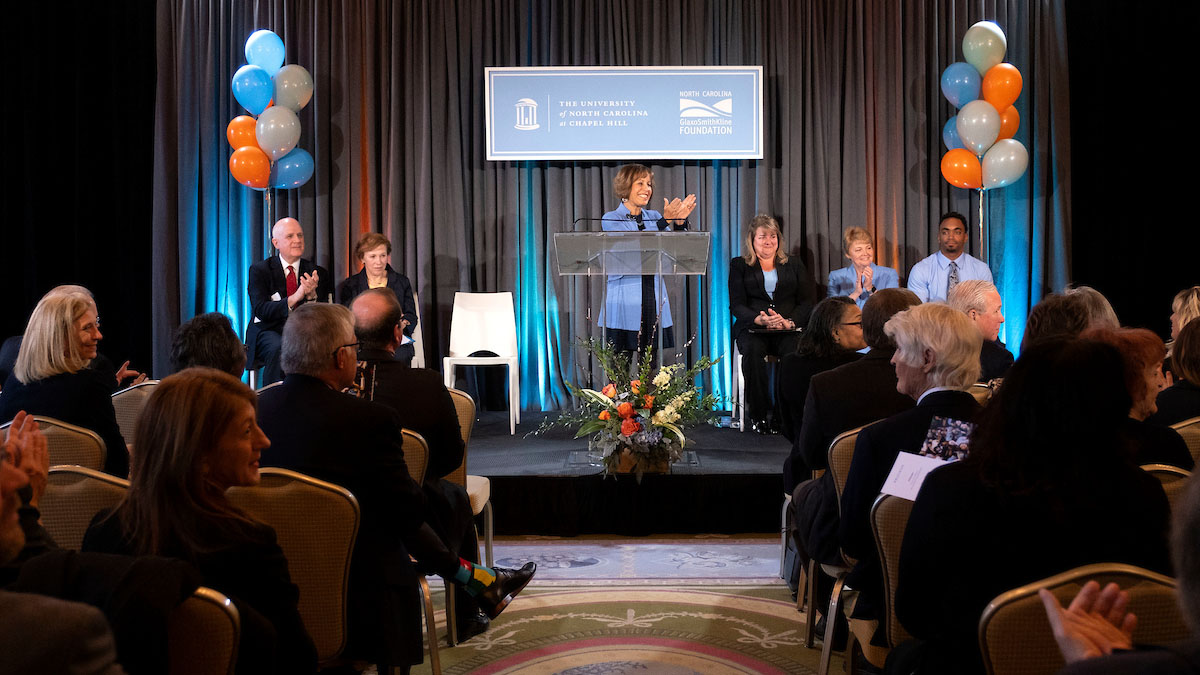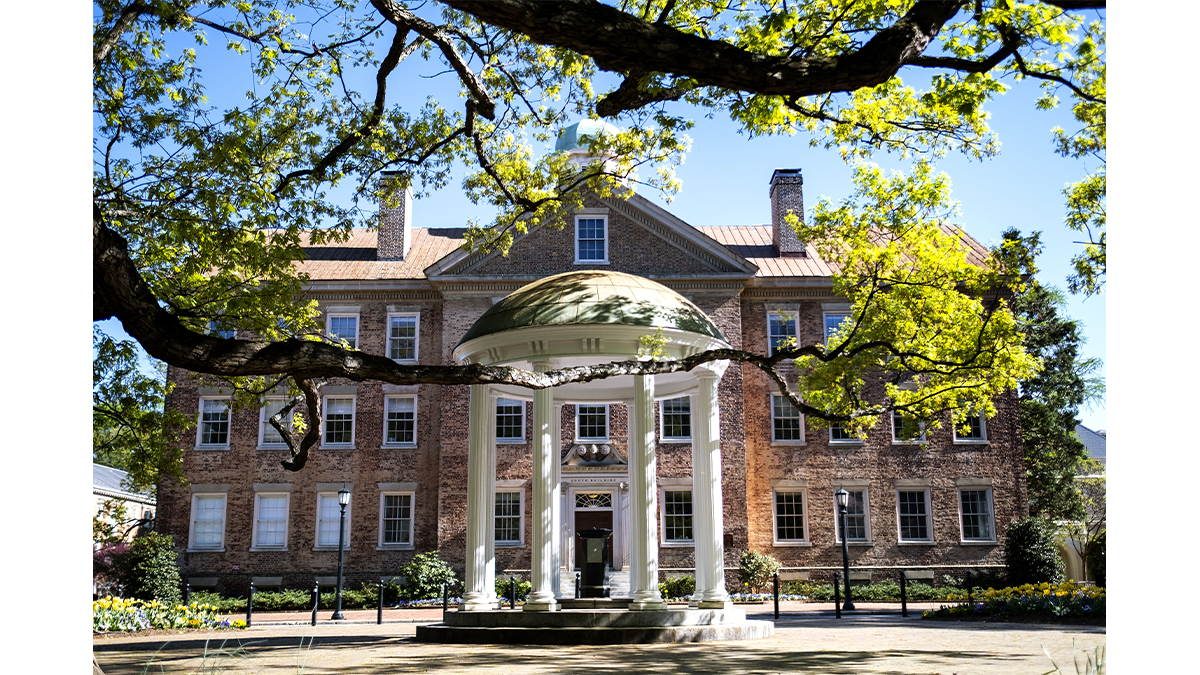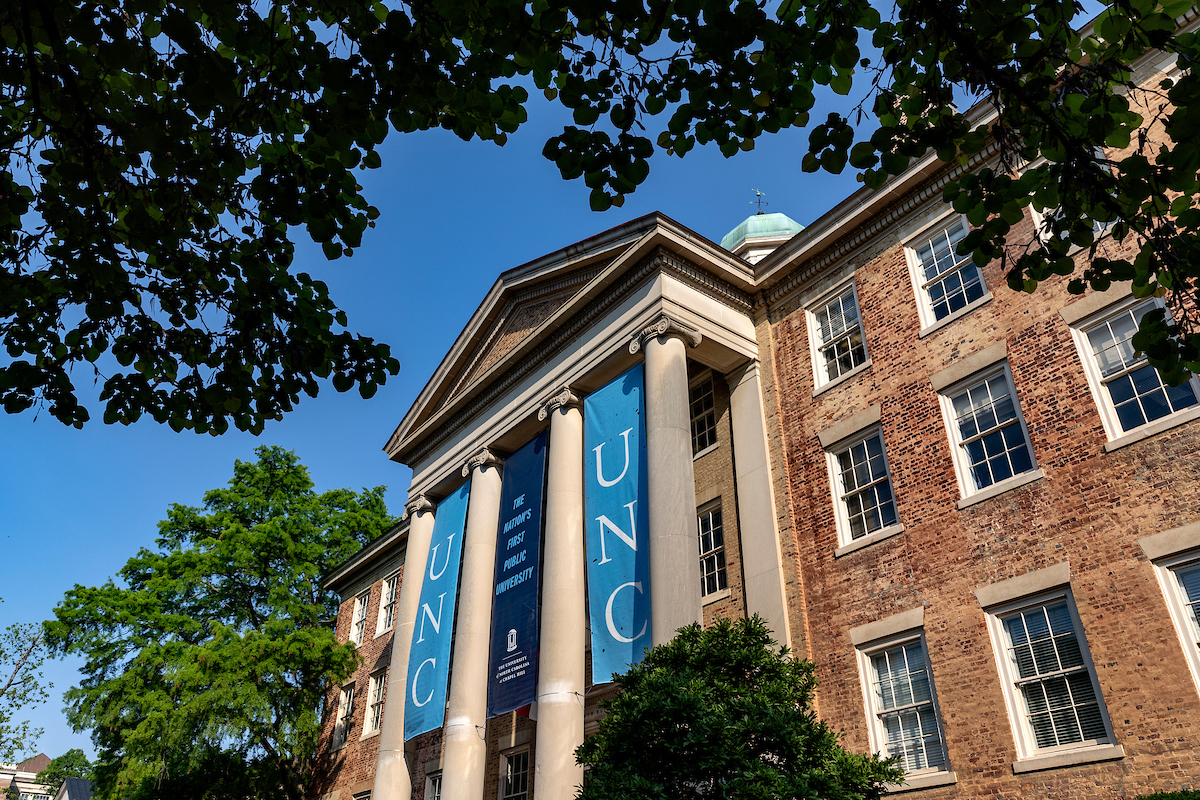UNC-Chapel Hill to expand community college partnership and enhance STEM mentorship with $1.1 million award from the North Carolina GlaxoSmithKline Foundation
Funds will establish a new STEM program for transfer students and expand C-STEP to two more community colleges

(Chapel Hill, N.C. – Jan. 11, 2019) – As part of its mission to provide a high-quality education to North Carolinians of all backgrounds, the University of North Carolina at Chapel Hill is expanding its partnership with the state’s community colleges, bringing its signature Carolina Student Transfer Excellence Program to Guilford Technical Community College and Central Piedmont Community College, and launching a new component, Pathways to STEM Success, to support students entering the STEM workforce. The expansion is made possible by a $1.13 million grant from the North Carolina GlaxoSmithKline Foundation.
Because many low- and moderate-income students pursuing higher education begin at community colleges, the University launched C-STEP in 2006 to enable more community college students to transfer to and graduate from Carolina. Through C-STEP, Carolina identifies high-achieving high school seniors and community college students whose household incomes fall at or below 300 percent of the federal poverty guidelines and guarantees entry to Carolina following the completion of an associate degree with cumulative grade-point averages of at least 3.2 at a partner community college. GTCC and CPCC are the latest colleges to join 11 other partner schools.
“As a community college transfer student myself, C-STEP is particularly meaningful to me,” said Chancellor Carol L. Folt. “I have witnessed how C-STEP provides opportunities for our students to pursue higher education and advance their dreams while enriching the university experience for everyone around them. I am excited to see how Pathways to STEM Success will build upon C-STEP’s achievements over the past 12 years and encourage more students to pursue STEM careers.”
The new Pathways to STEM Success initiative will build upon C-STEP’s existing advising programs and leverage Carolina’s leadership in training the next generation of STEM and health professionals. Students will receive field-specific mentoring to prepare them for graduate study or careers in STEM and health professions, and have opportunities for immersive experiences, such as summer internships and lab assistantships. Upon graduation, these students will be designated North Carolina GlaxoSmithKline Foundation C-STEP STEM Scholars and will wear a distinguishing cord with their gowns at commencement. Jobs in STEM fields are expected to grow 13 percent between 2017 and 2027, with 2.4 million of those jobs going unfilled in 2018.
“Central Piedmont Community College is thrilled to partner with UNC-Chapel Hill’s C-STEP program as it launches Pathways to STEM Success,” said Janael Yowell, director of transfer student services at CPCC. “We see so much potential for our students as this investment will help them transfer to Carolina and become successful professionals in STEM fields.”
“Our students are certainly looking for careers where they can be successful, but they’re also interested in giving back to their communities,” said Dr. Beth Pitonzo, senior vice president of instruction at GTCC. “This partnership with Carolina and the foundation will help our students fulfill both those goals and create benefits for the entire state.”
Once enrolled in C-STEP, the program provides transition and support services, such as dedicated academic advising from community college all the way to and through UNC-Chapel Hill as well as mentoring and networking opportunities and special seminars. Nationally, more than 80 percent of community college students intend to earn at least a bachelor’s degree. Yet, only about 25 percent actually transfer, and only 17 percent complete a bachelor’s degree. C-STEP students earn their bachelor’s degree at a rate of 85.5 percent. Almost 800 transfer students enter UNC-Chapel Hill each year, with about 44 percent transferring from North Carolina community colleges.
“The North Carolina GlaxoSmithKline Foundation aims to make a difference in the lives of North Carolinians through the advancement of math, science and health education,” Margaret Dardess, foundation president said. “The C-STEP program helps us achieve our objective by helping STEM students to reach their potential and find new careers in science. We are especially pleased that this grant honors our late board colleague Phail Wynn and his life-long passion for C-STEP at Durham Tech. We are proud to support the C-STEP staff and students with this grant.”
UNC-Chapel Hill consistently ranks at the top of the list for best value in public higher education, reflecting the University’s commitment to opening access to a high-quality, affordable education to well-qualified students from all backgrounds. UNC-Chapel Hill is one of the few public flagships to practice need-blind admissions and proudly meets 100 percent of the documented need of undergraduates qualifying for need-based aid who apply on time. Carolina meets more than two-thirds of that need with grants and scholarships and the average debt of graduating students is 22 percent below the national average. Fourteen percent of the Class of 2022 qualified for the Carolina Covenant, the University’s commitment to debt-free financial aid for its neediest students. More than 700 students are designated as Covenant Scholars each year.
The North Carolina GlaxoSmithKline Foundation grant supports For All Kind: the Campaign for Carolina, UNC-Chapel Hill’s historic fundraising drive that aims to raise $4.25 billion by Dec. 31, 2022. The campaign supports the Blueprint for Next, the University’s overall strategic framework built on two core strategies: “of the public, for the public” and “innovation made fundamental.”
-Carolina-
About the University of North Carolina at Chapel Hill
The University of North Carolina at Chapel Hill, the nation’s first public university, is a global higher education leader known for innovative teaching, research and public service. A member of the prestigious Association of American Universities, Carolina regularly ranks as the best value for academic quality in U.S. public higher education. Now in its third century, the University offers 74 bachelor’s, 104 master’s, 65 doctorate and seven professional degree programs through 14 schools including the College of Arts & Sciences. Every day, faculty, staff and students shape their teaching, research and public service to meet North Carolina’s most pressing needs in every region and all 100 counties. Carolina’s nearly 330,000 alumni live in all 50 states, the District of Columbia, US Territories and 162 countries. Almost 178,000 live in North Carolina.
About the North Carolina GlaxoSmithKline Foundation
The North Carolina GlaxoSmithKline Foundation is an independent self-funding 501(c)3 nonprofit organization supporting activities that help meet the educational and health needs of today’s society and future generations. Since 1986, the foundation has supported programs in North Carolina that help advance science, health and education. Over more than 30 years, the foundation has awarded more than $75 million in grants and pays approximately $3 million in grants each year to North Carolina nonprofit organizations.
University Communications: Kate Luck, (919) 445-8555, mediarelations@unc.edu


